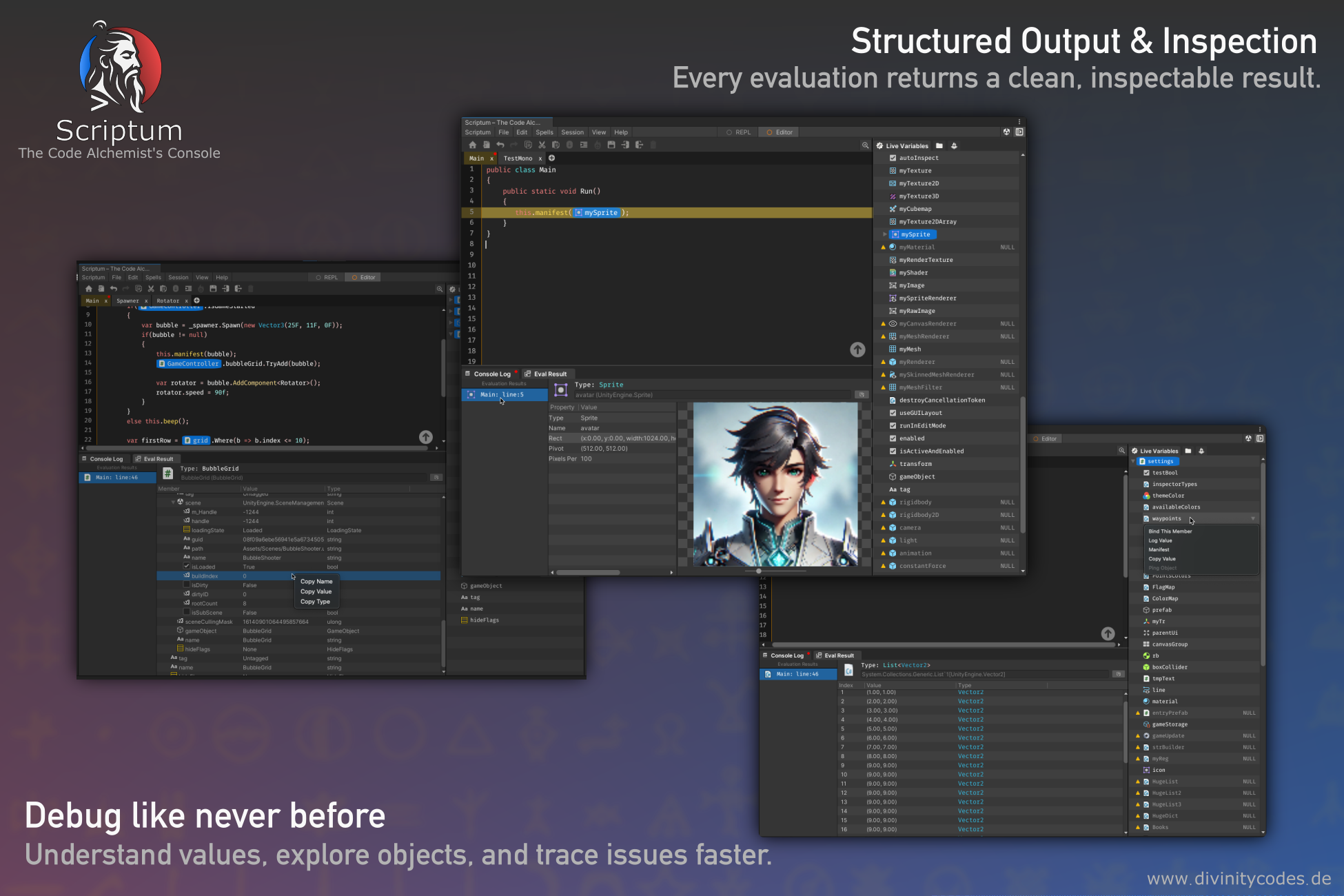Eval Result 
Eval Result is Scriptum’s advanced way to inspect values in the Editor Mode — replacing the traditional Debug.Log() with something far more powerful, structured, and flexible.
Instead of dumping plain text to the console, Eval Result turns any object into a visual, inspectable structure with support for:
- Nested members and collections
- Graphical previews (e.g., Texture2D, Mesh, Sprite)
- Interactive Tree View UI
- Runtime links to Live Variables
No more walls of unreadable logs — inspect your data like a dev alchemist.
What Is Eval Result?
Eval Result is a core feature of Editor Mode in Scriptum. It allows you to send any C# value to Scriptum’s rich inspector system via the built-in command:
It works on:- Primitive values (
int,bool,string, etc.) - Unity objects (GameObjects, Components, Textures, Materials…)
- Custom classes, structs, dictionaries, and arrays
- LINQ queries, evaluated results, and temporary expressions
Everything you send is turned into a presentable structure, displayed in Scriptum's custom Eval Result viewer.
Usage Examples
// Inspect a GameObject
manifest(GameObject.Find("Player"));
// Show current camera position
manifest(@camera.main.transform.position);
// Inspect custom class instance
var item = new InventoryItem("Sword", 3);
manifest(item);
Notes & Behaviors
- Eval Result is available in Editor Mode only
- The tree resets on script reload or after session restart
- Manifested objects are not serialized — it's a live reflection
- Performance is optimized with lazy loading and caching
💡
Debug.Logis noise.manifest()is clarity.
Inspect what matters — without losing your flow.
